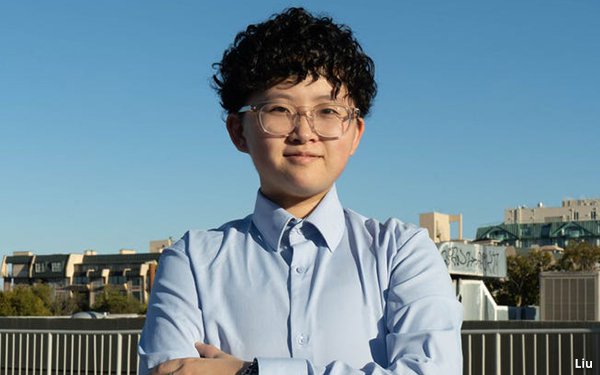
Bolbi Liu, CEO and founder of AdsGency AI, believes the
average person has roughly 30,000 days on Earth to make their mark. She seems to have already done that within her 29 years.
Liu developed a no-code platform to automate advertising workflows
from ideation and content generation to performance monitoring and optimization previously worked as a product manager at Amazon Web Services (AWS).
“I have a family full of founders,
businesspeople, and investors, but there are a couple of surgeons, my cousins,” Liu said. “I wanted to make sure I would do something meaningful and impactful for businesses and
people’s lives."
Making an impact drives her. Liu previously worked as a product manager at Amazon Web Services. She said AI founders these days are as young as 17 years old. It’s
a completely new way to create software.
advertisement
advertisement
Company developers are exploring ad-fraud detection similar to what DoubleVerify, Integral Ad Science (IAS), and Pixalate offer, but this technology
would integrate directly into AdGency’s platform, no longer relying on a third-party system.
Years ago I envisioned ad targeting and serving integrated into programmable systems on
semiconductor chips, which they called systems on chips, but Liu cited the operating system as the core technology or the brains behind these next-gen systems.
AdsGency AI recently raised a $12 million seed investment round led by XYZ Venture Capital to build
out what she described as an agentic AI operating system and agency for advertisers.
“We want to be the operating system,” Liu said. “That way everything is done in one
platform.”
When Liu was asked to provide a time frame, she said,“our goal is to break even within the next 12 months.”
AdsGency has about 15 employees, but the plan
is to double that by the end of the year. The engineers have experience in media, Amazon, and chipmakers like AMD.
Liu sees a new version of the ad network emerging where agents speak to
agents next year, where AdsGency AI becomes the SSP and the DSP for the future of AI agents. She works so much these days that Liu calls ChatGPT her therapist and best friend.
"We
believe that agents will know you better than any human," she said. "They memorize your interests and what you learn. We will target ads based on that memory."
Many companies have begun to
build browsers like OpenAI Atlas, with memory being a major feature to replace browser cookies and tags for ad targeting.
Within three to five years, Liu envisions advertising to be
something like what moviegoers saw in the Minority Report with Tom Cruise, where he’s standing in a Gap clothing store in a futuristic shopping mall. An AI figure pops up and says,
“Hello Mr. Yamamoto, how's those assorted tank tops work out for you?" Then the AI suggests buying something based on a memory of past purchases. Word of mouth transitioned to newspapers, then
television and social media to streamlining influencers.
But in this instance of the movie, the AI mistakes Cruise's character, John Anderton, for Mr. Yakamoto because he had an
illegal eye transplant to evade the city's retinal scanners. The point here is that the AI can recognize Cruise by a retina scan.
AdsGency AI supports a range of businesses and companies
-- even Uber drivers or gamers that want to advertise and promote their content or a small ecommerce site supporting a beauty brand -- from small advertisers to large corporations.